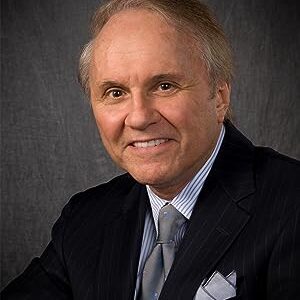Now Dr. Andrew G. Hodges, a prominent psychiatrist and forensic profiler, shows how a breakthrough to the mind sheds extraordinary new light on success.
Knowledge is power.
Daily we are surrounded by prominent people who provide rich object lessons in just how difficult success can be to manage.
Defined simply, success means achieving our best and helping those around us to achieve their best as well. Indeed there are secret rules of success that apply to careers, marriages, raising children, education, athletics, government, hobbies, and our spiritual lives. While we must develop our conscious thinking to enhance success, our conscious mind also presents major blind spots when it comes to maximizing success.
People have overlooked the pressures of success including the temptation to stop short or give it back. But we have an entirely new lens for looking at success. We all possess an “inner success coach” which guides us toward our best.
The Discovery–our inner genius
The key to this genius is to understand we simultaneously read situations including success in two ways — with our limited conscious mind and with our far more brilliant unconscious mind (the so called “other 90%” of the mind). This deeper mind quick-reads situations in the blink of an eye.
Author Malcolm Gladwell portrayed this well in his best-selling book “Blink.” In one sterling example a fire chief had the sudden instinct to clear the room where his men were putting out a fire. He ordered them out of the room just before the floor fell in revealing the deeper fire was in the floor below. Only later did he realize clues that he was unconsciously quick-reading.
Gladwell described the discovery of a “dazzling new unconscious mind” but mistakenly believed instincts were the ultimate in quick-reading. Yet clinical research in which Hodges participated (before Gladwell) revealed this new unconscious possessed a super intelligence which spoke clearly albeit between the lines in its own unique language — a narrative language, a symbolic story language.
Unknowingly our super-intel uses stories (often about others) or key images to reveal how it is quick-reading a situation. It is truly an inner success coach which guides us toward maximum achievement — just as the fire chief’s deeper mind did.
Right and Left-Brain Listening
By analogy think of the conscious mind as “left brain”– literal, on the surface. Think of the super-intel unconscious as right-brain — symbolic and intuitive. A major key to grasp the hidden pressures of success — obstacles to overcome — is to listen to “right-brain” super-intel messages, listen to stories in a deeper way.
For example a therapy patient consciously [left brain] felt he was ready to stop therapy, but his unconscious [right brain] then patterned stories of “unfinished business” (e.g. his remodeling project was not completed, his son shouldn’t drop out of college). His “right-brain” super intelligence saw success for him meant more self-understanding in therapy, that he had unfinished business.
In football terms we can think of our conscious “left-brain” mind as the “blind side”– where our blind spots are. Our unconscious “right-brain” mind helps us see past them through the stories we tell.
The facts are we have discovered deep down a new super intelligence in every one. We now know precisely how it quick-reads and how it speaks. We now have a whole new understanding of the mind and of motivation.
We have significantly new knowledge about success.
Sports Stories and Success Psychology
The competitive environment of sports offers excellent opportunities to observe how coaches and athletes deal with success issues. They play their games in public as they pursue their clear-cut goals. These events transpire in an observable fashion in a time-limited environment. So we can observe the “success arena” and hear people communicating about key issues in a rich and memorable manner. We have a new psychological lens through which to view success and self-sabotage. Sports stories present a valuable learning opportunity which can be directly applied to all of our daily lives.
But success stories are all around us. In big stories and “little” every day stories. Success — or the lack of success — lies at the very heart of our being.
